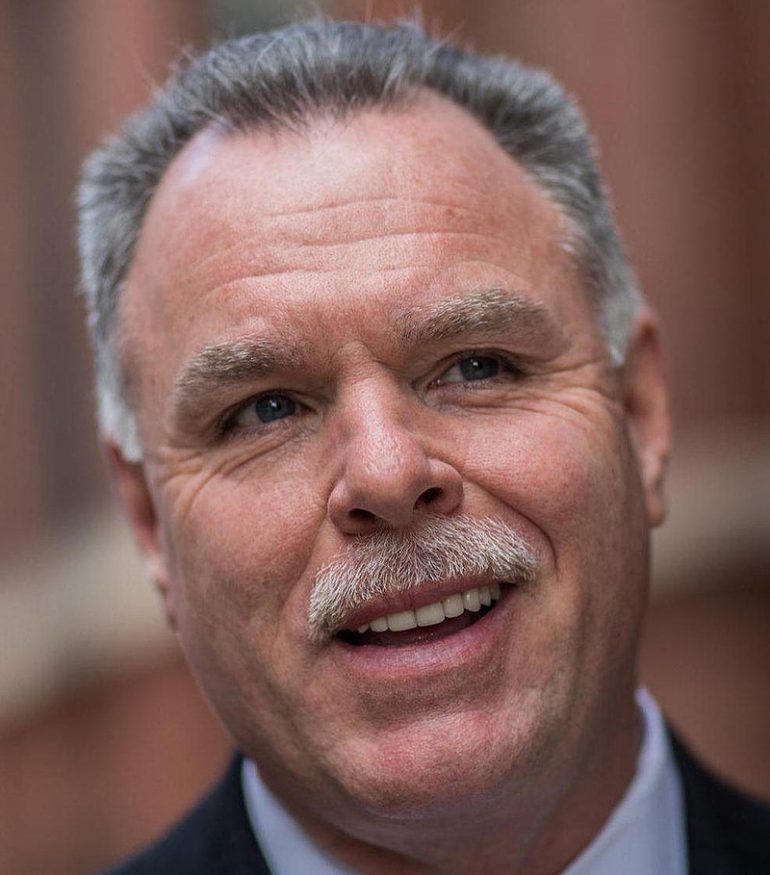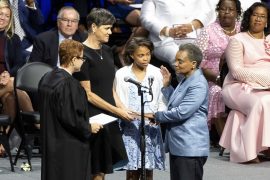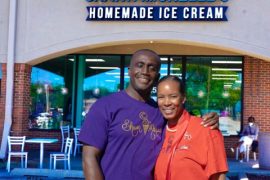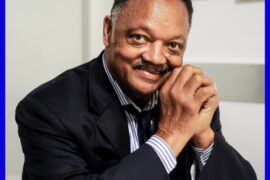Garry McCarthy, who served as Chicago Police Superintendent from 2011 to 2015, is among a host of candidates running for Mayor of Chicago in 2019.
McCarthy was born in New York City in 1959 and grew up in the Bronx. His father was a policeman and Marine Corps machine-gunner who fought in some of the toughest battles in the Pacific during World War II. His mother was a nurse who worked overnight shifts.
McCarthy graduated from a Catholic high school and earned his undergraduate degree from State University of New York Albany, where he played on both the football and baseball teams.
After graduating in 1981, McCarthy realized his lifelong dream of becoming a policeman – wearing, in fact, the same shield number as his father – #14573.
In 2000, he was named Deputy Commissioner for Operations of the New York City Police Department, where he directed the operational command center at Ground Zero during the attacks on 9/11. In 2006, then Mayor (and now Senator) Cory Booker recruited McCarthy to lead the police department of Newark, New Jersey.
He was named Superintendent of Police for the City of Chicago in 2011, then terminated on December 1, 2015 by Chicago Mayor Rahm Emanuel following the massive fallout from the police murder of 17-year-old Laquan McDonald.
McCarthy has three children and lives in Chicago with his wife Kristin, a Chicago attorney, and their son.
N’DIGO sat with McCarthy recently to discuss his run for mayor, what he would do in the office, and to get his insights on the Laquan McDonald case.
N’DIGO: Why would a nice guy like you want to be Mayor of the City of Chicago?
Garry McCarthy: About two years ago, people began to ask me if I was interested in running for office. I am a public servant, not a politician. They continued to ask and more people began to ask. The last straw for me was when Police Commander Paul Bauer got killed right outside of City Hall at the Thompson Center.
That showed how bad Chicago really is. That killing got to me. I knew Paul, and I promoted him. I have an ounce of guilt. Had I not promoted him, he might not have gotten killed. So I have this overdrive to do something with this city.
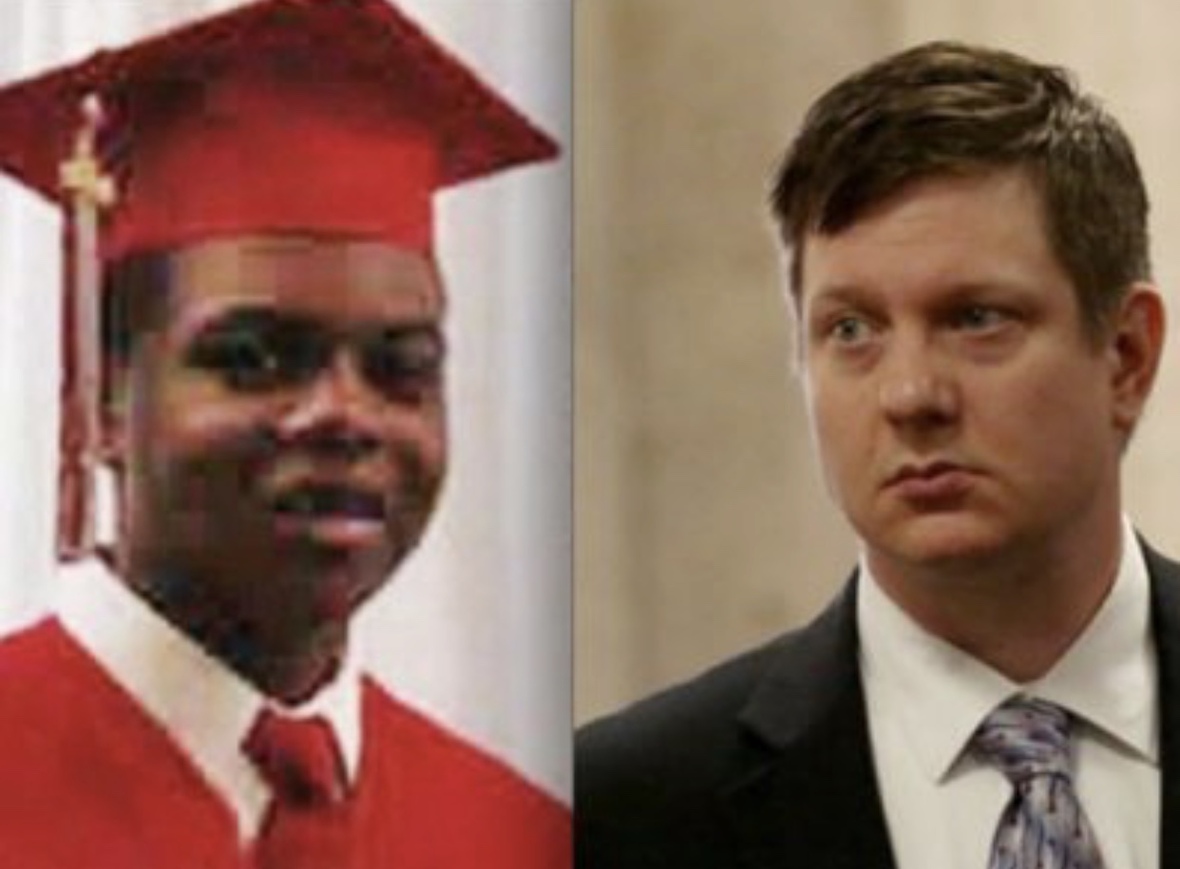
Did Mayor Rahm Emanuel sacrifice you in the Laquan McDonald case?
Absolutely. He did it to cover his own butt. The cover-up was on the civil side, not the criminal side. The only thing I could do by law was to put Officer Jason Van Dyke (who has since been convicted of murdering Laquan McDonald) on paid desk leave.
That cover-up happened with (Chicago Corporation Council and Mayor Rahm Emanuel’s senior legal advisor) Steve Patton. He orchestrated the cover-up. When he saw the video he said, “This is a case of murder.” He lied to the City Council to get the pay out. In his testimony in April 2015, he made the case to give the family $5 million dollars with the condition of not releasing the video.
That happened when the mayor was in the run-off. It was Rahm’s way of stealing the election. That is a criminal act called “official misconduct.” The troubling part with this is that some people, even when informed, think I had something to do with it. Patton eventually resigned as Corporation Counsel.
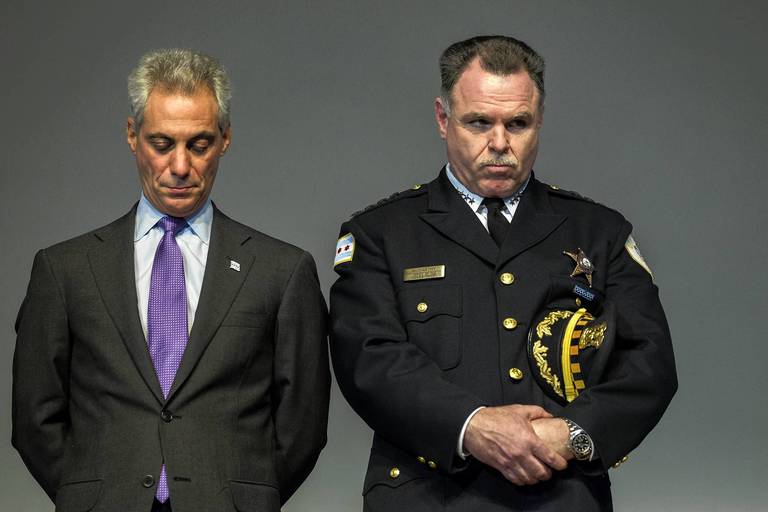
As a policeman you have seen killings, yet we are in another place right now with mass killings in churches, hospitals, schools, shopping malls, theaters and other public places. How do we stop it?
Mass shootings are different from everyday crime. The first thing we need to have is reasonability with gun laws. (President Barack) Obama tried to have mandatory background checks after the Sandy Hook killings. The legislation would prevent people with mental illness, terrorism and criminal backgrounds from getting firearms.
It was voted down on the Senate floor and didn’t even make it to the House of Representatives, even though 65 percent of NRA members themselves thought it was a good idea and 90 percent of all Americans in general thought it was a good idea.
The first thing to remember is that the NRA and the gun manufacturers pay the NRA to lobby the officials not to change the gun laws. Senators did not vote in favor of their constituency.
How could this be? They pay for the illegal and legal markets for guns in this country. Big business is killing people. Who’s dying? African Americans are dying more than any other demographic by the gun laws. The first thing we need is reasonability in gun laws.
In Illinois we don’t have strict gun laws; that is a misconception based on rhetoric. One thing to do in Cook County is to make people who carry guns illegally go to jail. Very few of them go to jail. State Representative Michael Zalewski introduced a bill to stiffen the laws. But the State Rifle Association took the bill to Black legislators and they tabled the bill.
Mass incarceration is first and foremost about failed narcotic laws and the fact that individuals with low-level offenses cannot make bail. Poor people get stuck in the system. It’s time to declare law on narcotics. People who commit robberies are usually heroin junkies. It’s about putting the right people in jail at the right time in the right place for the right reason.
We need data-driven policing. Under my administration as superintendent, we had lower murder rates than this city had seen in 50 years. There was a 40 percent reduction in overall crime; a 68 percent reduction in police-related shootings, and a 50 percent reduction in complaints against officers by civilians. By any metric, we were succeeding.
I started the accreditation process. Chicago is the largest department in the nation to have it. It is the gold standard for policing across the country and it is more important than the consent decree. People don’t realize that.
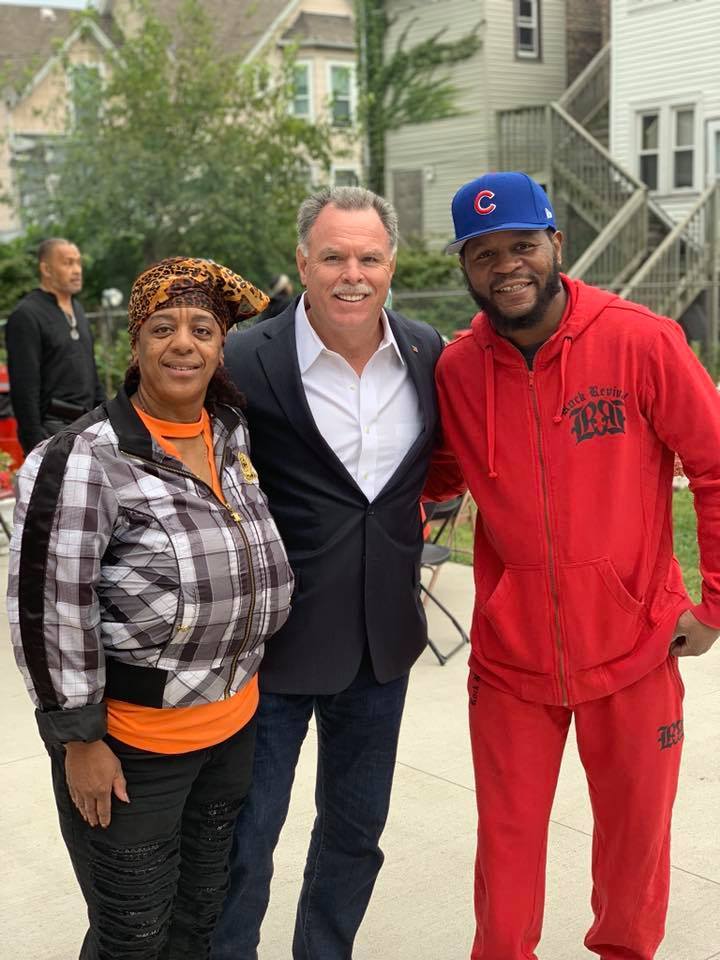
How would you run the city differently from Mayor Rahm Emanuel?
Chicago would run like a business, not a political machine. I would put in internal systems. I would have a government of inclusion. All would be welcomed in my administration with the best interest of Chicago in mind. Transparency, ethics and open government would be my hallmarks. I would not be hiding in my office. We need a compassion government, not one that closes schools.
What would you do about the Chicago Public Schools?
I would bring back the trade schools. I would create community schools where social services are right for the family as well as the student. I would take a holistic approach. I would fix conditions. I would have a mixed school board, with members both elected and appointed.
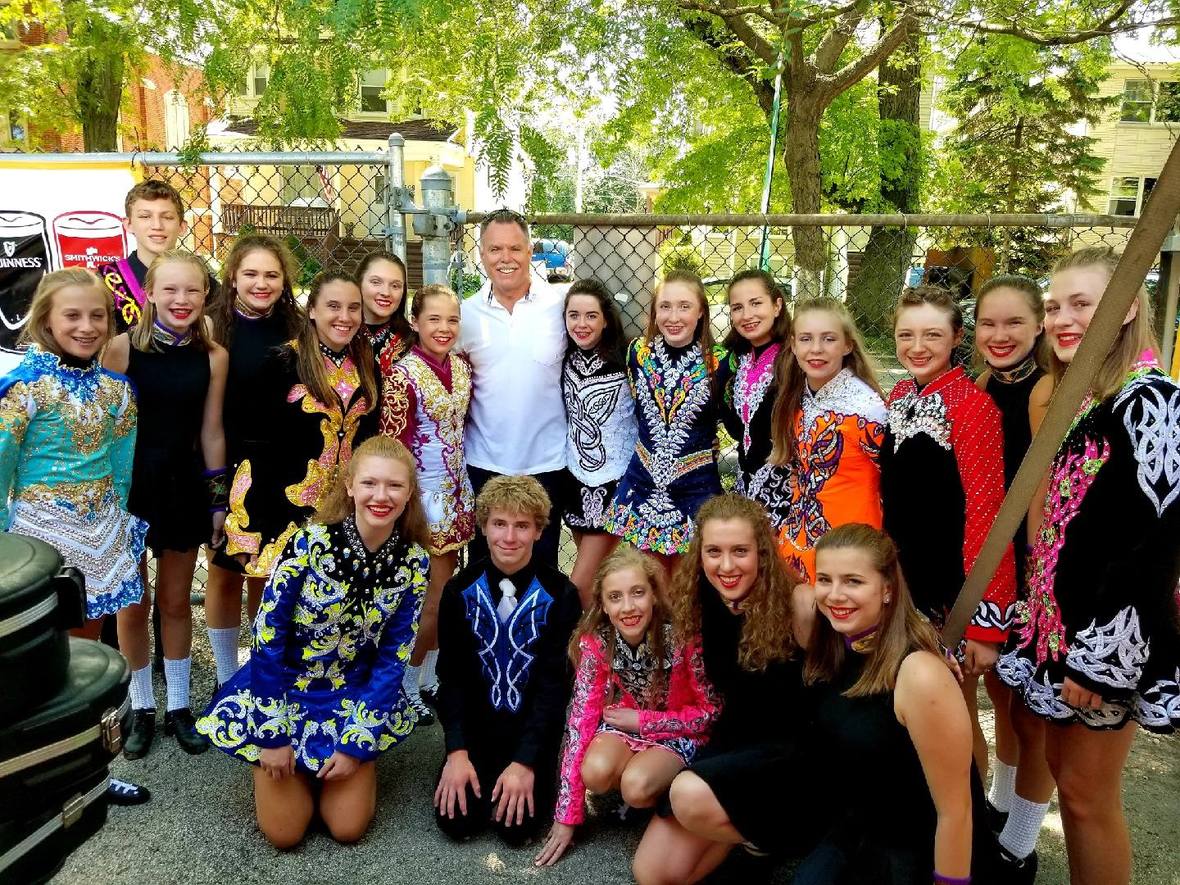
How would you bring economic parity to the South and West sides of the city?
I would give small businesses tax incentives and a trained work force. I would take the abandoned buildings and assume the properties for the city in order to create affordable housing. We have to have an economic force for these communities. Vocational schools would work on technology and electricians and carpentry, etc.
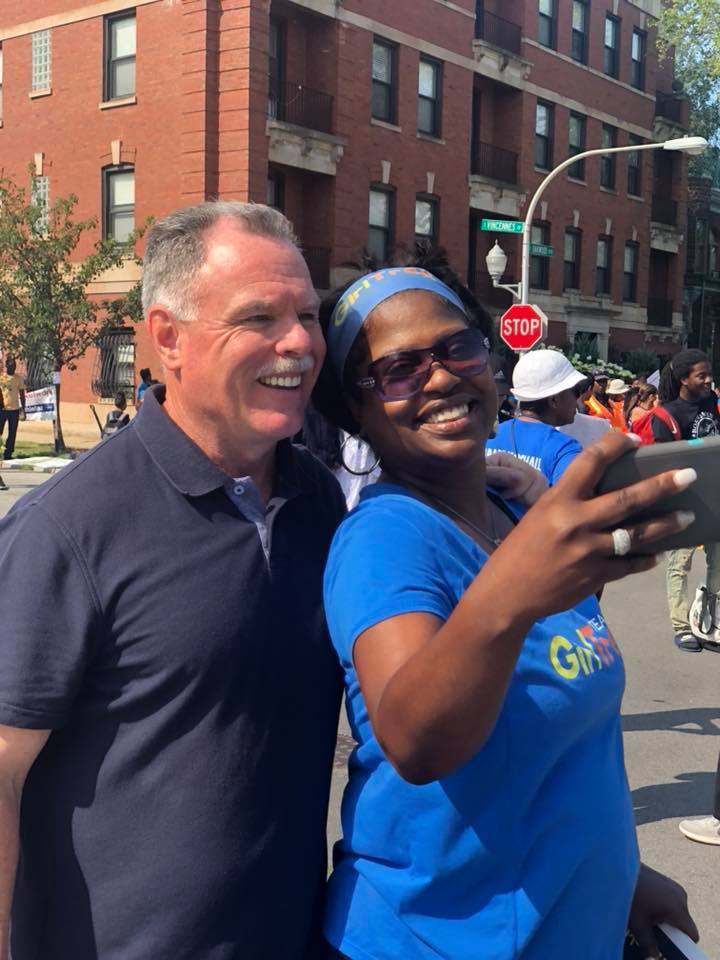
What would you do to guarantee economic inclusion in city contracts?
The first thing is to have customer service in City Hall – this goes to having a compassionate government and it has a lot to do with minority business. There must be parity to make sure across the board that there would be equality. I would make sure the city contracts reflect the city demographics.
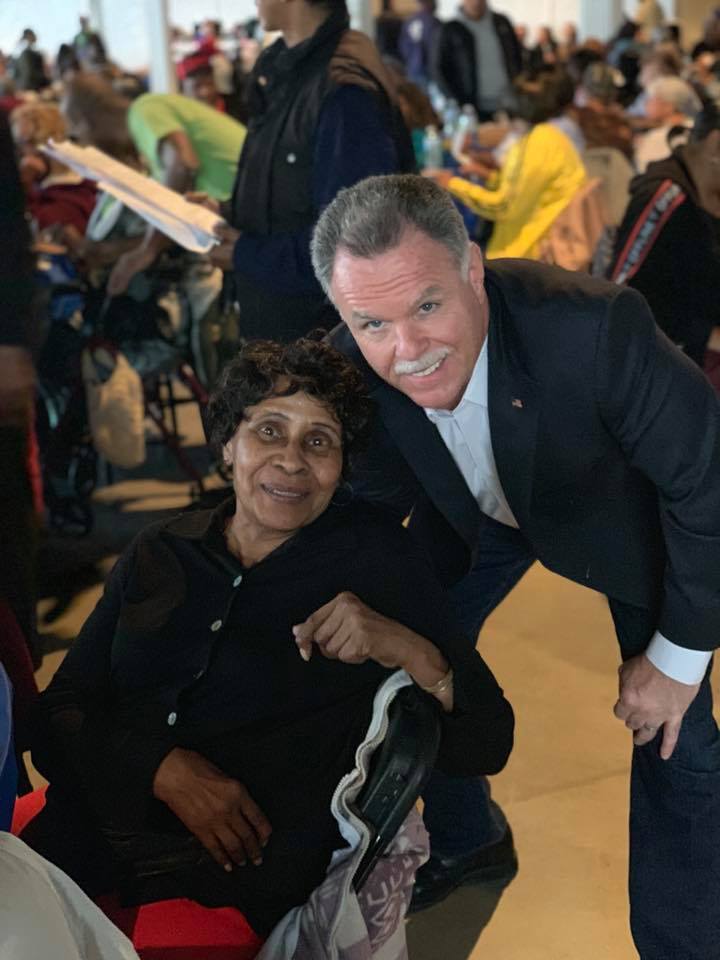
What’s on your playlist?
The Chi-Lites, Marvin Gaye, Al Green, Alicia Keys, Beyoncé, Billy Paul, The Who, Rolling Stones, Chicago, David Ruffin, Harold Melvin and the Blue Notes, Eric Clapton, Eminem, Gladys Knight.
Who would you most like to meet that you haven’t?
Jesus Christ, Abraham Lincoln and Lewis “Chesty” Puller – he is a deceased Marine who was a three-star general and won five Navy Crosses from World War II through the Korean War. He was the most decorated Marine in American history.
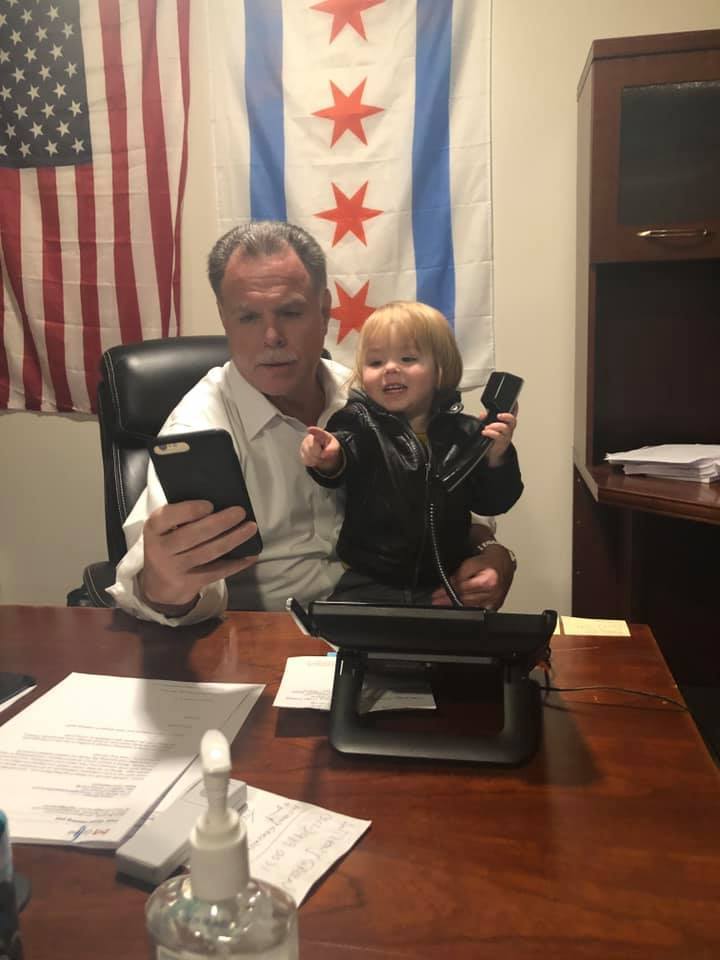
What do you most like about Chicago?
This city has been very welcoming to me – not the politicians, but the people – and that crosses every demographic.

